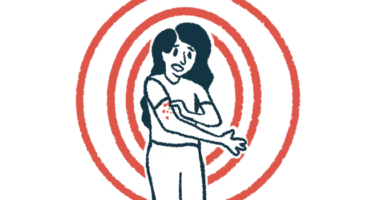Ascletis to stop clinical testing of ASC42 in primary biliary cholangitis
Therapy expected to ease bile accumulation, symptoms, prevent liver damage

Ascletis Pharma will not to pursue further clinical testing of its experimental oral therapy ASC42 for adults with primary biliary cholangitis (PBC).
The move was based on a “thorough analysis” of data from a Phase 2 clinical trial (NCT05190523) that showed ASC42’s safety and effectiveness didn’t support its development, according to a company press release.
PBC is an autoimmune disease marked by chronic cholangitis, or inflammation of the bile ducts, a series of tubes that carry the digestive fluid bile from the liver to the intestines. The disease leads to the slow, progressive destruction of the bile ducts. As a result, bile accumulates to toxic levels in the liver, causing damage and bile acid leakage into the bloodstream. Without effective treatment, damage to liver tissue can lead to irreversible scarring, or cirrhosis, and liver failure.
ASC42 is designed to activate the farnesoid X receptor (FXR), a protein found at high levels in the liver and intestine that regulates key genes involved in the metabolic process of producing and transporting bile acid. Because activating FXR suppresses the production of bile acids and increases the flow of bile out of the liver, ASC42 was expected to lower its toxic accumulation, ease PBC symptoms, and prevent liver damage.
The Phase 2 study, which was initiated in 2022 and conducted at a single site in China, enrolled 98 adults, ages 18-75, with a definite or probable PBC diagnosis. The participants were randomly assigned to receive a tablet of either one of three ASC42 doses (5, 10, or 15 mg) or a placebo, once daily for 12 weeks, or about three months.
ASC42 ‘insufficient’ against a placebo
The study’s main goal was to assess changes in blood levels of the liver enzyme alkaline phosphatase (ALP), a marker of liver injury. Along with safety measures, its secondary goals included changes in levels of other liver damage markers, such as gamma-glutamyltransferase, alanine aminotransferase, and aspartate aminotransferase.
Trial data showed ASC42’s effectiveness and safety against a placebo were insufficient to bring the drug to market, according to Ascletis. No detailed results were provided.
“ASC42 did not show competitiveness to new PBC drug candidates currently in development and registrational stages,” the company stated in the release. Registrational trials are those that are designed to support a therapy’s approval.
Approved PBC treatments in the U.S. include ursodeoxycholic acid (UDCA), sold under the names Urso and Actigall, and Ocaliva (obeticholic acid). UDCA is a nontoxic bile acid that can help get bile flowing through the liver, and Ocaliva is an FXR activator that can be used when patients don’t respond to or can’t tolerate UDCA. Ocaliva, which is being reviewed for full approval in the U.S., can worsen itching for some patients.
Seladelpar, CymaBay Therapeutics’ oral candidate for PBC, is a selective activator of PPAR-delta, a protein that regulates genes involved in PBC-related processes, including bile acid generation, inflammation, and scarring.
In a global Phase 3 trial called RESPONSE (NCT04620733), the experimental therapy normalized ALP levels and reduced itching in adults with PBC. It’s up for approval in the U.S., where a decision is expected by Aug. 14, and in Europe and the U.K.
Ascletis will also halt clinical testing of ASC42 in the liver conditions metabolic dysfunction-associated steatohepatitis, a severe type of fatty liver disease, and hepatitis B.








